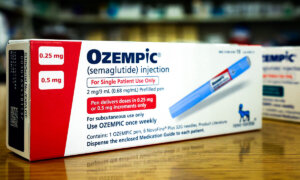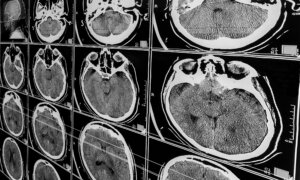The very thing most likely to kill you after a heart attack is the one thing your doctor probably won’t discuss: your diet.
Despite food being a major culprit in heart disease deaths, dietary advice is missing from the recovery plans of three out of four cardiac patients in the United States, according to new research.
Food Choices Linked to Heart Disease Deaths
Recent studies show the critical role of diet in cardiovascular health.
An analysis by the Institute for Health Metrics and Evaluation attributed 30 percent of cardiovascular disease deaths in 2021 to poor diet.
This finding aligns with broader research suggesting that more than two-thirds of heart disease-related deaths worldwide are linked to food choices, according to the European Society of Cardiology.
A 2019 study found that healthy lifestyle choices could reduce the risk of stroke—a cardiovascular event when blood supply to the brain is cut off or when a blood vessel in the brain bursts—by 80 percent, with diet identified as the most influential factor.
If you’ve had a heart attack, seeing a registered dietitian nutritionist can be a “huge part” of rehabilitation, Stephanie Schiff, a clinical dietitian at the cardiac telemetry unit at Huntington Hospital, Northwell Health in New York, told The Epoch Times. “You may need to learn to change certain habits so that you don’t have another heart attack or other cardiac incident,” she added.
Crucial Dietary Counseling Not Provided in Many Cases
In a
new observational study, published in the Journal of the Academy of Nutrition and Dietetics, researchers tracked more than 146,000 patients hospitalized for serious heart conditions from 2015 to 2020. They found that clinicians documented providing dietary counseling in only 23 percent of cases within 90 days of hospitalization.
This counseling, which could be part of a supervised cardiac rehabilitation program or medical nutrition therapy, involves detailed nutritional assessments and targeted interventions led by registered dietitian nutritionists.
Several factors contribute to this lack of counseling, according to Dr. Brandt.
- Clinicians may lack time or expertise in nutrition.
- Medical nutrition therapy is covered only for Medicare patients with diabetes and end-stage kidney disease. Many patients lack insurance coverage for dietitian services.
- Complex patient care issues take priority.
Poor diet contributes more to cardiovascular disease than smoking, obesity, or diabetes, Dr. Eric Brandt, lead study author and director of preventive cardiology at the Frankel Cardiovascular Center, told The Epoch Times. If it’s not being appropriately addressed, “it’s a big deal.”
In 2022, the American Heart Association released a position statement supporting efforts to increase equitable access to nutritious and affordable food in health care delivery. “Right now only those with diabetes and advanced kidney disease are guaranteed coverage in Medicare,” Dr. Brandt said.
Access to the necessary dietary counseling could be improved by Congress passing the Medical Nutrition Therapy Act of 2023, he added. The bill aims to change Medicare rules to guarantee coverage for dietitian visits for those with cardiovascular disease, related risk factors, and other diet-sensitive medical problems.
Medication Isn’t a ‘Magic Bullet’
Many patients with cardiovascular issues mistakenly believe their problems are solved by medication alone, Ms. Schiff said.
“We need to teach the public, even before they develop heart disease, how important a heart-healthy diet and lifestyle is,” she said. Prevention is “so much less invasive” than medications and surgery.
Acknowledging that healthy eating can be challenging, Ms. Schiff noted that dietitians can provide budget-friendly menu suggestions. If you’re not taking care of your health up front, “the result is huge costs in health care for the individual and for the country,” Ms. Schiff added.
How Registered Dieticians Help Heart Patients
Ms. Schiff outlined several ways a registered dietitian can help heart patients prevent future cardiac events:
- Educating patients on reducing sodium intake by teaching them to identify hidden sodium sources written on nutrition labels
- Advising on identifying heart-healthy fats and recommending foods rich in beneficial fiber
- Providing guidance on lowering cholesterol levels
- Offering support to transform harmful habits into healthy, sustainable ones
- Discussing the importance of physical activity and stress reduction techniques
“All these things can help lower your risk of another heart attack and further damage to your heart,” Ms. Schiff, who sees patients stunned to learn about how serious their situation has become. “Many will see it as a moment to turn their life around,” Ms. Schiff added. “And hopefully they’ll do just that.”









